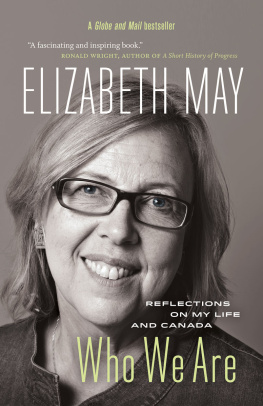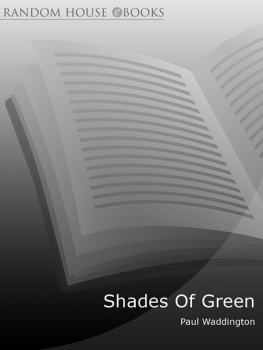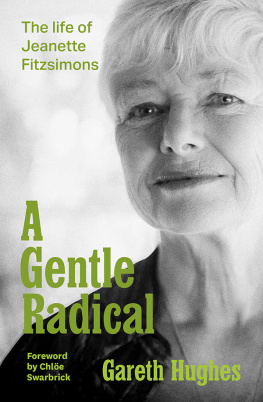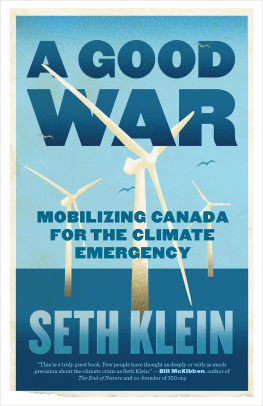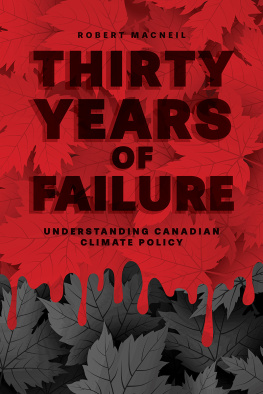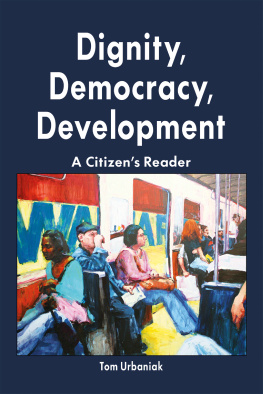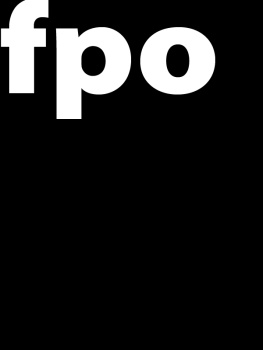Chapter One
THE FORMING OF AN ACTIVIST
A wooden angel was placed over my crib at home, but a mushroom cloud would have been more appropriate. The potential for mutually assured destruction was the constant nighttime companion of children of the Cold War fifties.
Our mother did her best to shield my brother and me from nuclear anxiety, keeping us home whenever the school asked parents to send kids to school with blankets and pillows to be used in practice drills for nuclear war. The duck and cover training seems absurd now, but the threat of nuclear war was real. We only found out about the Cuban Missile Crisis the day after it passed, when my parents seemed unnaturally happy to be alive.
My childhood was marked by my mothers campaigns against nuclear weapons testing. Her commitment to end the testing of H-bombs in the atmosphere was a manifestation of maternal instinct. As a new mother, she was intensely aware of warnings from scientists that nuclear atmospheric testing was dispersing clouds of toxic radioactive fallout, which would accumulate in childrens bones and increase the incidence of childhood leukemia. Although she tried to shield us from these facts, her concerns rubbed off on me. I warned the other children in kindergarten not to eat the snow because it contained strontium-90. This did not make me popular.
Because my parents wanted us to learn French, we were put in private school. But my moms activism led the other parents to brand her a Communist, with the result that my little brother, Geoffrey, and I were rarely included in class parties and mostly ostracized in class. Geoffrey still describes our life from nursery school to grade nine, when we left Renbrook Country Day School, as being prisoners of conscience.
In contrast to my mother, my father was by choice and by character a retiring man and preferred to stay in the background. Norman Cousins, then editor of the Saturday Review, a friend of my mother through her work against the bomb, and an adopted uncle to me, once introduced him as Mr. Stephanie May. Being both unusually forgiving and proud of all my mom did, my father took it in stride. When Senator Eugene McCarthy finally met him, after years of knowing my mother and me, he greeted him with a cheery, He lives!
John May was no different from many fathers in the 1950sa good provider working long hours in the corporate world of Insurance City. When I read James Thurbers The Secret Life of Walter Mitty, I thought Thurber must have known him. In my fathers spare time he escaped into military history, staging battles with battalions of toy soldiers. Every June 18, the Battle of Waterloo was refought with my brother and me and friends and neighbours commanding the troops in our backyard. We thought everyone knew that the anniversary date of the Battle of Waterloo was June 18, 1815.
My father had grown up in the UK of British parents but, by an accident of history, was born in the U.S. His father, a commercial artist and painter, was making a living in Manhattan in the 1920s when my father was born. Then, on a family visit to Barnet, England, the stock market crash forced them to stay. With no memory of the U.S., John grew up outside London and had an adolescence dominated by the blitz, buzz bombs, and the all-too-routine loss of his neighbours. Having served in the Home Guard, he found himself at the age of eighteen with the choice of joining either the British or the U.S. Army. He chose the U.S. Army, which gave him the postwar GI Bill and an education in accountancy at Columbia Business School in New York.
It was at Columbia that my parents met, as my mother pursued her talent as a sculptor at the Arts Students League, and he pursued accounting and her. After graduation, he took a job at Aetna Life and Casualty in Hartford, Connecticut. By then, my parents were married.
Years later, after President Kennedy signed the nuclear test ban treaty, my mothers campaigning moved on to marches, picnics, and church events in support of the civil rights movement. I remember great days in interracial softball games and summer schools where I helped kids from the inner city learn to read. Then, in January 1965, Lyndon Johnson (who had run for president on the promise that he would not send American boys to Vietnam to do what Vietnamese boys should be doing for themselves) started the aerial bombardment of North Vietnam. The rapidly escalating war in Southeast Asia, with its napalm and horror, remained the focus of our family life until we took a summer vacation to Cape Breton Island in 1972.
We fell head over heels in love with Cape Breton. It was perhaps the beauty and tranquility of Cape Breton, so far from the political angst and turmoil of the U.S., that led my parents to pack it all in and move there for good. They toyed with ideas for what they would do in their new life, as if discussing a new hobby. It never occurred to them that such a move could wipe us out financially. With more determination than experience, they decided the future lay in running a restaurant.
We had never been a nomadic family. In Connecticut, we had lived in the same house on seven acres, with ponies, sheep, chickens, an extremely obstinate donkey, and an assorted menagerie, for eighteen years. The woods in back of our house were an almost inexhaustible place for adventure. I often think it was the closeness to nature I experienced as a child that made me an environmentalist.
It certainly had a lot to do with our lambs. The first impact of my mothers impetuous decision to give Geoffrey and me pet lambs as Easter presents was that, not so gradually, we became vegetarians. As we watched in joy while our lambs frolicked, my parents friends, all too often, would make cringe-worthy comments such as Be sure to invite me when lamb chops are on the menu. One family friend asked my brother, If you arent going to eat them, what are they for? Despite the shock of the question, Geoffrey, at age eight, managed to answer, They are for to love.
Further testament to our innocence was that I never understood why my parents friends laughed when I tried to remember the breed of our sheep. I would say, They are Norfolks or Suffolks or some kind of fuck. They were, in fact, Suffolks, black faced with white wool.
When our lambs grew up, we sent them back to the flock to be bred in hopes of more lambs. Soon Smokey and Baaa gave birth to their own lambs. My grade six science project was a detailed chronicling of the gestation and birth of Corey (to Smokey) and Thunder and Spring (to Baaa). Raised outside of a flock, these new lambies of ours were amazing. They came when they were called, by name, as smart as any dogs we had ever had. Thunder and Spring were twins and their mother, Baaa, was the good mother, interested in educational opportunities, taking Thunder and Spring on long walks around the property. Smokey was not a great mother, refusing to nurse Corey and always looking for more grain. She stayed near the barn. Mamas boy Corey stuck to her like glue and that saved his life.
To wean them, the lambs were sent back to the farm where they had been purchased. While they were away, Baaa became horribly ill. She had convulsions, twitching and thrashing. I tried to soothe her in the back of our station wagon as my mother drove madly down the winding country roads to reach the vet. After Baaa died, my mom asked for an autopsy. No answers came. No toxic leaves in her stomach contents; no sign of how she could have died.
Her poor baby lambs came back after weaning and looked everywhere for their mother. Corey had Smokey, but Thunder and Spring searched in vain. We would see them on the lawn grazing, and suddenly they would look up at each other, bleat happily, and tear off toward some place they had just thought of and not yet searched. They would return dejected. It was excruciating to watch. Spring lost her voice from crying. Her bleat became a croaking incomplete baaa. Worse was to come. First Thunder and then Spring developed the same symptoms as their mother. The harrowing trip to the vet was repeated twice. Their eyes rolled back in their heads and they frothed at the mouth, as I tried to tell them I loved them and theyd be okay.
Next page
